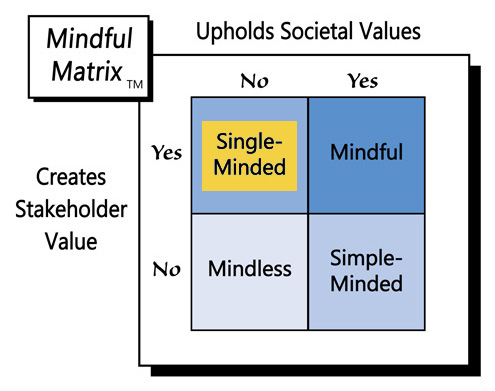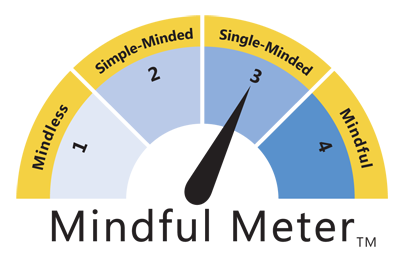It’ good to hear of hearts going out to the people of Flint, MI, who have suffered greatly from drinking water made dangerous by lead. It’s also encouraging that many have donated to help mitigate the city’s disaster. Among those who have graciously given or pledged to give to the needs of Flint are:
- Tom Gores, Owner of the Detroit Pistons - $10 million
- Aretha Franklin, the “Queen of Soul” – hotel rooms and food for 25-50 people
- The Game, Rapper - $1 million in bottled water
- Anheuser-Busch – over 51,000 cans of drinking water
- AQUAhydrate – 1 million bottles of water
- Jimmy Fallon - $10,000
- Madonna - $10,000
- Detroit Lions Defensive Lineman – 94,000 bottles of water
- Cher and Glacial – 180,000+ bottles of water
In the wake of such a calamity, promotion often plays an important role as both individuals and organizations take up the cause to market the need for relief. A key question, then, becomes how best to persuade participation.
Some believe that a soft-sell works best: simply inform people of the need and allow them to decide if, when, and how they will respond. Others advocate a more potent appeal, for instance by painting an emotion-evoking picture and pleading with potential benefactors to participate. Then there are those who take an even more aggressive approach, essentially demanding that others engage, under threat of social sanction or shame.
The latter is the tactic that the Game appears to have taken in an attempt to force more support to Flint. More specifically, the gansta rapper has unambiguously called out comedian Jimmy Fallon and popstar Madonna for each giving “just” $10,000 each to help provide relief to residents. Here’s the Game’s indictment:
"I seen @Madonna & @JimmyFallon's $10,000 donations... that's cute, but not nearly enough.... So I challenge both & anyone else in the world to match me & DONATE $1,000,000 in bottled water to Flint, Michigan & we want proof, shipping order receipts, bank wire receipts, pictures etc........... No more pretending to give a f***..... I donate money all the time & it comes out of my pocket & never once have I written anything off on my taxes because that's not why I do it !!!!!!!! So, if any other celebrity wants to MATCH MY MILLION here's the site where you can donate http://selfmadefoundation.org or pick your own.. JUST MAKE SURE THE WATER ACTUALLY GETS TO THE PEOPLE WHO NEED IT !! & I don't wanna see anyone else using the word "PLEDGE" in their donation or press release because we know that that means. ‘YOU JUST TALKING & TRYING TO MAKE YOURSELF LOOK LIKE A HUMANITARIAN’”
So far it appears that neither Fallon nor Madonna has responded to the Game’s expletive-infused and guilt-laden petition. Does that mean that such shame-based pleas are ineffective? No, there's actually support for the opposite.
Shaming others into action, including to give, often works. For instance, a frequently-cited 2008 study in Psychology & Marketing found that guilt was a significant, positive predictor of intentions to donate. Likewise, research has found that punishment tends to be a more effective motivator than reward. In addition, some argue that in the face of serious human need, like that of Flint, the ends justify the means, i.e., it’s okay to compromise fair treatment and respect for some, if the result is a greater good.
So, should individuals and organizations ratchet up the guilt in order to secure money? No. Just like it’s criminal for thieves to use guns, knives, or other threats to force their victims to give to them, it’s wrong to wield guilt as weapon to pressure people to donate. Using coercion of any kind to gain gifts is immoral. Likewise, as Mindful Marketing often expounds: just because you can do something doesn’t mean you should.
It can be tempting to look at the giving of others and conclude that they could give more, but we need to remind ourselves that we really don’t know their situations, including what they might be giving to other causes. There’s also the real risk that publicly shaming some for offering too little may dissuade others from giving at all, for fear that their gifts will be called too small. That’s a terrible outcome when every little bit of aid matters.
Still, research and anecdotal evidence do suggest that people will give more when made to feel guilty, which makes forceful fundraising, like that of the Game, effective. That approach also compromises, however, important societal values like fairness and respect for current and potential benefactors. As a result, anyone who leverages guilt to encourage gifts should be called out for “Single-Minded Marketing.”
Learn more about the Mindful Matrix and Mindful Meter.
Check out Mindful Marketing Ads and Vote your Mind!




 RSS Feed
RSS Feed